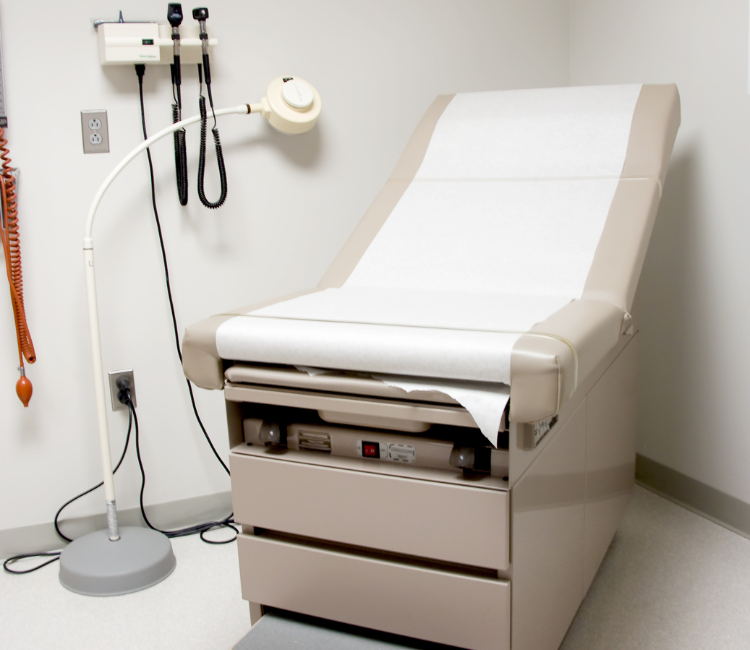As Black men approach the age of 40, a crucial milestone in life, their health demands greater attention and care.
This demographic faces distinct health challenges that necessitate targeted strategies and proactive interventions.
By addressing critical health concerns such as regular medical check-ups, cardiovascular health, mental health, diabetes prevention, prostate health, and promoting overall well-being, Black men can better navigate the complexities of aging while enhancing their quality of life.
This article delves into the essential health priorities for Black men over 40, offering insight into how to manage and mitigate risks that are often more prevalent within this group.
The Importance of Regular Health Check-Ups
Routine health check-ups are foundational for maintaining optimal health, particularly for Black men over 40 who are at higher risk for various chronic diseases.
Regular visits to healthcare providers allow for the early detection of conditions that might otherwise go unnoticed until they become more severe.
The Office of Minority Health, part of the Department for Health and Human Services highlights that Black men are disproportionately affected by chronic conditions such as hypertension, diabetes, and certain cancers.
These routine check-ups often include screenings for blood pressure, cholesterol levels, and prostate health, which are vital in catching potential health issues in their early stages.
The emphasis on regular health evaluations cannot be overstated.

Blood pressure monitoring is especially critical since hypertension is more common and often more severe among Black men.
This “silent killer” can lead to heart disease, stroke, and other life-threatening conditions if left unchecked.
Through regular monitoring, lifestyle modifications, and possibly medication, blood pressure can be managed effectively, thereby reducing the risk of more severe outcomes.
Cholesterol screenings are equally important.
High cholesterol levels can lead to the buildup of plaque in the arteries, increasing the risk of heart attacks and strokes.
Regular blood tests can help identify elevated cholesterol levels early, allowing for dietary changes, increased physical activity, and medication to manage and lower these levels.
For prostate health, men over 40, particularly Black men, should consider regular screenings such as the Prostate-Specific Antigen (PSA) test.
Given the higher incidence and aggressiveness of prostate cancer in Black men, early detection through these screenings is crucial.
Discussions with healthcare providers about the timing and frequency of these tests are essential to ensure that prostate cancer is caught early when it is most treatable.
Cardiovascular Health: A Critical Focus
Cardiovascular disease remains the leading cause of death among Black men in the United States.
This alarming statistic underscores the need for targeted prevention and management strategies.
Several risk factors, including high blood pressure, obesity, diabetes, and a sedentary lifestyle, contribute to this increased risk. Addressing these factors through lifestyle modifications is key to reducing the burden of cardiovascular diseases.
Regular physical activity is one of the most effective ways to maintain a healthy heart.
Activities such as brisk walking, cycling, or swimming can significantly reduce the risk of heart disease by helping to control weight, lower blood pressure, and improve overall cardiovascular function.
Dietary choices also play a significant role in heart health. A heart-healthy diet rich in fruits, vegetables, whole grains, and lean proteins can help manage weight, cholesterol levels, and blood pressure.
Reducing the intake of sodium, saturated fats, and processed foods is particularly important for Black men, who are more likely to develop high blood pressure at a younger age.
Stress management is another critical component of cardiovascular health.
Chronic stress has been linked to an increased risk of heart disease, particularly in those already predisposed to cardiovascular issues.
Black men, who often face unique stressors related to racism, discrimination, and socioeconomic challenges, may be at an even greater risk.
Engaging in stress-reducing activities such as mindfulness, yoga, or even regular social interaction can help mitigate the harmful effects of stress on the heart.
Mental Health: Breaking Down Barriers
Mental health is a crucial, yet often overlooked, aspect of well-being for Black men over 40.
Despite the prevalence of mental health issues such as depression, anxiety, and stress, Black men are significantly less likely to seek mental health treatment compared to their white counterparts.
This disparity is largely due to cultural stigmas, lack of access to mental health services, and a general reluctance to acknowledge emotional vulnerability.
The stigma surrounding mental health in the Black community often discourages men from seeking help. Mental health issues are sometimes viewed as a sign of weakness, and this perception can prevent individuals from accessing the support they need.
Addressing this stigma through education and open conversations is vital for encouraging more Black men to prioritize their mental health.

Access to mental health services is another significant barrier.
Many Black men may lack access to affordable, culturally competent mental health care.
Improving access to these services requires systemic changes, including increased funding for mental health programs, more mental health professionals of color, and greater outreach efforts within Black communities.
Encouraging Black men to seek therapy, join support groups, and practice self-care techniques can significantly improve their mental health outcomes.
Therapy, whether individual or group-based, provides a safe space for individuals to explore their emotions, develop coping strategies, and address underlying issues.
Support groups offer a sense of community and shared experience, which can be particularly beneficial for those feeling isolated or misunderstood.
Self-care practices such as meditation, journaling, and regular physical activity can also help manage stress and anxiety.
These activities promote mindfulness, relaxation, and a greater sense of control over one’s mental and emotional state. By integrating these practices into daily routines, Black men can improve their overall mental health and resilience.
Diabetes and Obesity Prevention
The prevalence of diabetes and obesity among Black men over 40 is a growing concern.
The American Diabetes Association reports that Black adults are nearly twice as likely to be diagnosed with diabetes compared to white adults.
Obesity, a significant risk factor for diabetes, is also more common among Black men.
Addressing these issues requires a comprehensive approach that includes dietary changes, increased physical activity, and regular monitoring of blood sugar levels.
Diet plays a crucial role in both the prevention and management of diabetes and obesity.
A diet rich in fruits, vegetables, whole grains, and lean proteins can help maintain a healthy weight and regulate blood sugar levels.

Reducing the intake of sugary beverages, processed foods, and high-calorie snacks is essential for preventing obesity and managing diabetes.
Portion control is another important factor.
Overeating, even healthy foods, can lead to weight gain and increased blood sugar levels.
Educating Black men about appropriate portion sizes and the importance of balanced meals can help them make healthier food choices and avoid the pitfalls of overconsumption.
Regular physical activity is also vital for preventing diabetes and managing weight.
Exercise helps the body use insulin more effectively, reducing the risk of developing diabetes.
It also helps burn calories, build muscle, and improve overall fitness.
The CDC recommends at least 150 minutes of moderate-intensity exercise per week, along with strength-training activities on two or more days per week.
Regular monitoring of blood sugar levels is essential for those at risk of or already diagnosed with diabetes.
Keeping track of blood sugar levels helps individuals understand how their diet, exercise, and medications affect their condition.
It also allows for early detection of potential issues, enabling timely interventions that can prevent complications.
Prostate Health and Cancer Screening
Prostate cancer is the most common cancer among Black men, who are more likely to be diagnosed at an advanced stage compared to other racial and ethnic groups.
This disparity makes prostate health and regular cancer screenings critical for Black men over 40.
Early detection through screenings such as the Prostate-Specific Antigen (PSA) test and digital rectal exams can significantly improve treatment outcomes and survival rates.
Understanding the risk factors for prostate cancer is essential for prevention and early detection.
These risk factors include age, family history, and race, with Black men having a higher risk than other groups.

Discussing these risk factors with a healthcare provider can help Black men make informed decisions about when to start screening and how frequently to get tested.
The PSA test is a simple blood test that measures the level of prostate-specific antigen in the blood.
Elevated PSA levels can indicate the presence of prostate cancer, although they can also be caused by other prostate conditions.
The digital rectal exam (DRE) is another screening tool that allows doctors to feel the prostate for abnormalities.
While these tests are not foolproof, they are currently the best methods for early detection of prostate cancer.
In addition to regular screenings, Black men should discuss any potential symptoms of prostate cancer with their healthcare provider.
Symptoms such as difficulty urinating, blood in the urine, or pelvic discomfort should not be ignored, as they may indicate the presence of prostate cancer or other prostate-related conditions.
Treatment options for prostate cancer vary depending on the stage of the cancer and the overall health of the patient.
These options may include surgery, radiation therapy, hormone therapy, and active surveillance for less aggressive cancers. Early detection through regular screenings gives Black men the best chance of successful treatment and long-term survival.
Promoting Healthy Lifestyles and Stress Management
Leading a healthy lifestyle is vital for overall well-being, particularly for Black men over 40.
Engaging in regular physical activity, maintaining a balanced diet, getting enough sleep, and managing stress are all crucial components of a healthy lifestyle.
However, Black men often face unique challenges that can make it difficult to prioritize their health.
Racism, discrimination, and socioeconomic factors can contribute to chronic stress, which in turn can have a negative impact on both physical and mental health.
It is important for Black men to find healthy ways to manage stress, whether through physical activity, hobbies, social connections, or professional counseling.
Physical activity is not only beneficial for cardiovascular health but also plays a key role in managing stress and improving mental health.
Exercise releases endorphins, the body’s natural mood enhancers, and provides a healthy outlet for stress and frustration.
Whether it’s a daily walk, a workout at the gym, or a group sport, regular physical activity is essential for maintaining both physical and mental health.

A balanced diet is another cornerstone of a healthy lifestyle. Eating a variety of nutrient-dense foods, including fruits, vegetables, whole grains, and lean proteins, provides the body with the essential nutrients it needs to function optimally.
Avoiding excessive consumption of processed foods, sugary drinks, and high-fat meals can help prevent weight gain, diabetes, and heart disease.
Getting enough sleep is also critical for health. Sleep allows the body to repair and rejuvenate, and chronic sleep deprivation has been linked to a range of health issues, including obesity, diabetes, and cardiovascular disease.
Black men should aim for seven to nine hours of sleep per night and establish a regular sleep routine to improve sleep quality.
Stress management is perhaps the most challenging aspect of maintaining a healthy lifestyle, especially given the unique stressors Black men face. Finding healthy ways to cope with stress is essential for both physical and mental well-being.
This might include practicing mindfulness, engaging in hobbies, spending time with loved ones, or seeking professional support through therapy or counseling.
Building a strong support network is also crucial for stress management. Whether it’s family, friends, or community groups, having a network of supportive people can make a significant difference in managing life’s challenges.
Encouraging Black men to prioritize their relationships and seek out positive social connections can help them better navigate stress and improve their overall quality of life.
A Call to Action for Black Men Over 40
Prioritizing health is not just a recommendation but a necessity for Black men over 40.
By focusing on regular health check-ups, addressing cardiovascular health, raising mental health awareness, preventing diabetes and obesity, and ensuring prostate health, Black men can significantly reduce their risk of chronic diseases and enhance their overall well-being.
These proactive measures, coupled with promoting healthy lifestyles and effective stress management, empower Black men to take control of their health and lead fulfilling, healthy lives.
Healthcare providers, community leaders, and family members all play a vital role in supporting Black men on this journey.
By raising awareness, improving access to healthcare services, and creating environments that encourage self-care, we can help Black men over 40 prioritize their health and well-being.
It is a collective effort that requires ongoing commitment, but the rewards—a longer, healthier, and more fulfilling life—are well worth it.
Cheers to health!🥂
